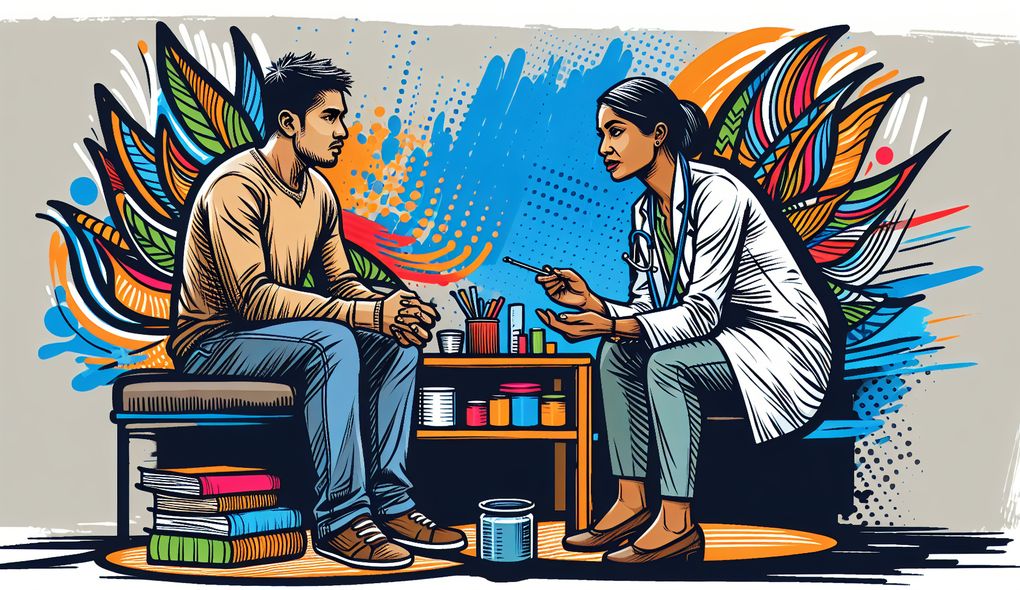How do you monitor client progress and make adjustments to treatment plans?
INTERMEDIATE LEVEL

Sample answer to the question:
To monitor client progress and make adjustments to treatment plans, I regularly check in with clients and conduct ongoing assessments of their progress. This involves having open and honest conversations with clients to track their goals, milestones, and challenges. Additionally, I review their treatment plans and any relevant documentation to ensure that they are aligned with their current needs. If necessary, I make adjustments to the treatment plan, such as modifying therapy techniques or incorporating additional support services. Throughout the process, I prioritize confidentiality and respect the client's autonomy in decision-making. By staying proactive and responsive, I strive to provide the best possible care for each client.
Here is a more solid answer:
To effectively monitor client progress and make adjustments to treatment plans, I employ a comprehensive approach. Firstly, I establish a strong therapeutic relationship with clients, fostering trust and open communication. Through regular check-ins, I gather valuable feedback on their experiences and challenges. Ongoing assessments, such as standardized scales and qualitative measures, help me track their progress and identify areas for adjustment. Additionally, I review treatment plans and relevant documentation, ensuring that they align with the client's current needs and goals. If necessary, I make modifications to the plan, incorporating evidence-based techniques and additional support services. Throughout this process, I prioritize confidentiality and respect the client's autonomy in decision-making, involving them in the collaborative decision-making process. By utilizing my interpersonal skills, knowledge of treatment modalities, and sound judgement, I strive to provide individualized and effective care to each client.
Why is this a more solid answer?
The solid answer provides more specific details on how the candidate monitors client progress, including the establishment of a therapeutic relationship, regular check-ins, and the use of assessments and documentation review. It also emphasizes the importance of confidentiality and involving the client in the decision-making process. However, it could further improve by providing examples of specific treatment modalities and coping strategies used.
An example of a exceptional answer:
Monitoring client progress and making adjustments to treatment plans require a holistic and client-centered approach. Firstly, I build a strong therapeutic alliance by actively listening, showing empathy, and fostering a safe and non-judgmental space. Through regular check-ins, I explore clients' experiences, challenges, and successes, ensuring that their goals and treatment plans remain relevant. To assess progress, I utilize a combination of qualitative and quantitative measures, such as standardized scales, self-assessment tools, and behavior tracking. This data allows me to identify areas of progress and areas that may require adjustments. I also stay up-to-date with the latest research and evidence-based practices in addiction treatment to ensure the effectiveness of the treatment plan. When making adjustments, I collaborate with clients, discussing their preferences, exploring alternative approaches, and incorporating their feedback into the decision-making process. Additionally, I facilitate group therapy sessions, providing opportunities for clients to learn from and support one another. By continuously evaluating and adapting treatment plans, maintaining confidentiality, and empowering clients in their recovery journey, I strive to provide comprehensive and personalized care.
Why is this an exceptional answer?
The exceptional answer demonstrates a holistic and client-centered approach to monitoring client progress and making adjustments to treatment plans. It highlights the importance of actively listening, empathy, and collaboration in building a therapeutic alliance. The answer also showcases the candidate's commitment to staying updated with research and evidence-based practices. Furthermore, it emphasizes the involvement of clients in the decision-making process and the facilitation of group therapy sessions for additional support. The answer could be further enhanced by providing specific examples of research or evidence-based practices used.
How to prepare for this question:
- Familiarize yourself with different treatment modalities for substance abuse and their corresponding evidence-based practices.
- Practice active listening and empathy skills to establish a strong therapeutic alliance with clients.
- Develop knowledge of assessment tools and techniques, including both qualitative and quantitative measures.
- Reflect on past experiences where you had to adjust treatment plans and explain your decision-making process.
- Stay updated with current research and advancements in addiction counseling and share your commitment to ongoing professional development during the interview.
What are interviewers evaluating with this question?
- Interpersonal skills
- Knowledge of treatment modalities
- Ability to handle sensitive information
- Empathy and patience
- Judgement and decision-making abilities

